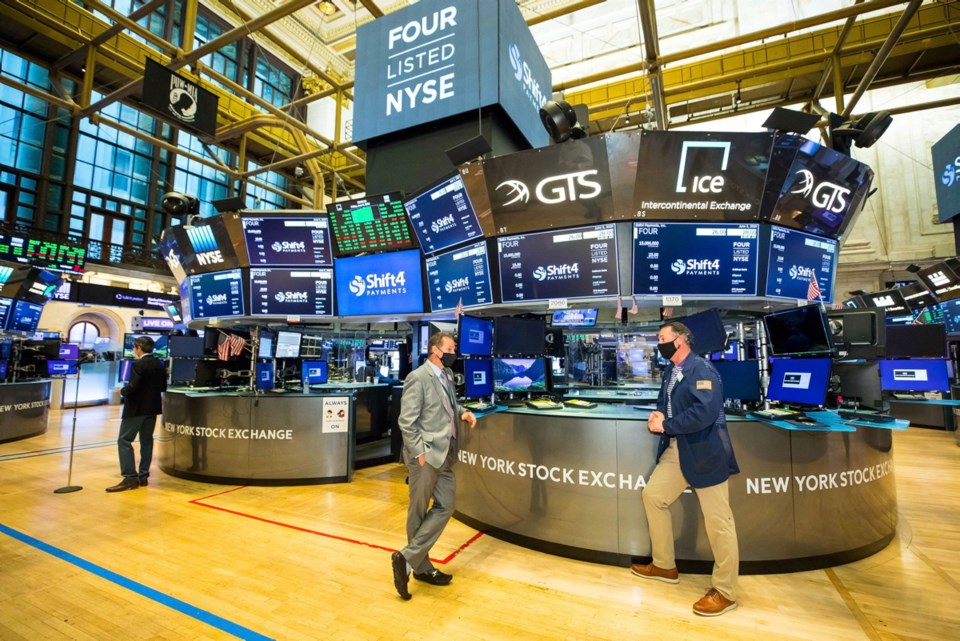The general assumption among economists and financiers is that shutdown policies designed to slow the COVID-19 epidemic will devastate the global economy for years to come. The International Monetary Fund has said as much.
But an interesting analysis, from an unexpected source, takes issue with this prediction.
The unexpected source is Jason Furman, former U.S. president Barack Obama’s chief economist. Unexpected because Democrats south of the border generally believe the economic tailspin will damage President Donald Trump’s chances of re-election. His biggest selling point pre-COVID-19 had been a period of unprecedented growth in employment and working-class incomes.
Furman’s case is this. The impact of the COVID-19 pandemic has been likened to the 2008 Great Recession, and the 1930s Great Depression.
Both caused worldwide havoc, and both had effects that endured for years. The Great Depression only ended with the onset of the Second World War, which triggered massive government spending on weaponry, and the drafting of millions into armed forces.
We are still seeing the impact of the 2008 recession, which battered the banking sector, clobbered the stock market and hiked government deficits to enormous levels. It took six years for sa���ʴ�ý’s federal budget to return to a surplus.
In effect, both of these events had far-reaching structural ramifications. They undermined the basic financial pillars upon which modern economies are built, and they did so to such an extent that no immediate solutions lay in sight.
Furman’s point is that the COVID-19 crisis in no way resembles these earlier disasters. He gives as analogies instead the 9/11 destruction of the World Trade Center in New York, and the devastation caused in New Orleans by Hurricane Katrina in 2005.
Both of these also caused immediate and far-flung reverberations. They flattened stock markets, and, in the case of 9/11, raised the spectre of global terrorism to an unprecedented level.
Yet in both instances, the world economy, including that of the U.S., rebounded fairly quickly. Consumption and hiring recovered surprisingly fast. The reason, arguably, is that these events caused more psychological damage than deep-rooted economic harm.
Yes, thousands lost their lives, and many more their homes and places of work. But the devastation inflicted on the world economy was limited in nature. Put another way, it was relatively short-term in nature.
Economists call this a “V-shaped” recovery. That is to say, there was an immediate and sharp downturn, followed by a nearly immediate and equally sharp bounce back.
Furman sees that potential in the COVID-19 mess. Yes, millions have lost their jobs, and yes, some businesses have been shuttered that are unlikely to revive.
But the basics of a working economy are still in place. Many of those who have been displaced are on a form of furlough. When the worst of COVID-19 is past, their jobs will, in the main, still be there.
As we write this, the Toronto stock market has rebounded from a consolidated price index of 12508 on March 12 to 15854 by Friday, a 31 per cent recovery in less than three months.
Agreed, stock markets are jittery critters. We could be back down again by next week.
But if Furman is right (and that’s a very big “if”): “We are about to see the best economic data we’ve seen in the history of this country [the U.S].”
His analysis is backed up by the U.S. Congressional Budget Office, which is predicting a 21.5 per cent growth rate in the third quarter of 2020 (July to September). That would be the strongest quarter in American history, following likely the worst second quarter ever.
What any of this means for sa���ʴ�ý is unknown. Doom and gloom remain the narrative of the day.
But if it’s true that when the U.S. catches a cold, we get pneumonia, the opposite may also be true. If the American economy roars back by late summer, ours may possibly do better.
��- - -
To comment on this article, send a letter to the editor.
• Email: [email protected]
• Mail: Letters to the editor, sa���ʴ�ý, 2621 Douglas St., Victoria, sa���ʴ�ý V8T 4M2.
Letters should be no longer than 250 words and may be edited for length, legality or clarity. Avoid emailing your letter as an attachment. Please include contact information; we require your first and last name and the municipality where you live for the letter to be considered for publication.
��



